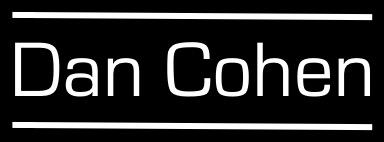As I mentioned in my memorial post for my mentor Frank Turner, we were having a deep discussion of the future of peer review when he suddenly passed away. I wish we could have finished this discussion; as with so many other things, he brought tremendous insight to the topic. Much of the discussion was about personal experiences with peer review that I can’t recount in this public space, but we also got into “strategic planning” for changing the peer review system.
Here are the powerful last few email messages I received from Frank, redacted of personal matters and some touchy subjects. I think all of us trying to reform the academy through digital means should heed his words.
On the practice of peer review (I limit my thoughts to the Humanities) I have several different and conflicting opinions. Numerous journals are really quite well edited in my experience…In theory and often in practice peer review is a good thing.
But the problems of peer review are also longstanding…Other journals have in the past and still do remain the proprietary reserves of academic cliques or worse. One of the problems of which peer review in the humanities is only one facet is the absence of any agreed-upon and widely accepted understanding of the professional procedures and expectations. (Some would say a lack of “professional ethics.”) This has been exacerbated by the vast expansion of the academy in the second half of the last century; the often undue research expectations put on faculty in institutions that cannot financially support significant research; the necessity of editors sending out all manuscripts no matter how clearly mediocre and or undeveloped and hence expanding peer review expectations…
As you and others think through the peer review process, I would hope that you would keep several things in mind. First, you will need to avoid the appearance of playing tennis with the net down. Groups of friends or overly like-minded folks producing journals or collections of essays may disperse various views but do not necessarily make for tough-minded scholarship. Second, the kind of new reviewing processes you and others are suggesting could provide the opportunity really to establish widely accepted understandings of procedures and expectations. Such would be a major new departure, and it could benefit from the input of the editors of genuinely respected journals. Third, and I will return to this point below on another topic, as journals come to be published online (and I think within five years or less entirely on-line), they should make available to readers the possibility of commenting on articles. Again, there would need to be some kind of template so the comments are not like those on Amazon. But what would emerge would be a kind of scholarly community of commentary, revision, and correction. Fourth, at the end of the day, however, a new, open, collective peer review process will still need to indicate that some work is stronger, more deeply researched, and more profoundly analyzed than other work. I happen to think one of the benefits of studying the various areas of the humanities is achieving the capacity to make judgments. The peer review of humanities scholarship should avoid at all costs the appearance and the reality of not being able to make judgments regarding quality…
Let me expand the purview of what you and others are seeking to accomplish. The realm of peer reviewing of articles is really quite strong when compared to that of book reviewing in journals. Books reviews are published with essentially no peer review, little or no concern or indication of actual or potential conflict of interest, and little or no concern for factual correctness. Such reviews are then used across the country in promotion processes. Scholarly book reviewing stands in a near scandalous situation. Most people review books in order not to purchase them. Reviews tend to be quite brief and as I have indicated are generally unedited except for style. Many reviewers simply rehash the dust jacket. Your group could again add to your agenda the establishment of professional procedures and expectations regarding book reviewing. These would include all reviewers indicating any conflict of interests, e.g., having taught the author, friendship with the author, residing in the same academic department or institution with the author, having written or edited a similar or competing book, having published with the same press, or having some political, religious, or ideological point of view that informs their thinking. Furthermore, again with the establishment of almost entirely on-line journal publication, all authors could be permitted to comment on and correct reviews and other scholars could similarly comment on the review or the book reviewed…
Most of you who are looking toward new ways of peer reviewing are young or at the entry level of the profession. All of you have a clear interest in reforming the existing reviewing process. I hope you will add that to your agenda as well as the peer reviewing of journals.

Leave a Reply
You must be logged in to post a comment.